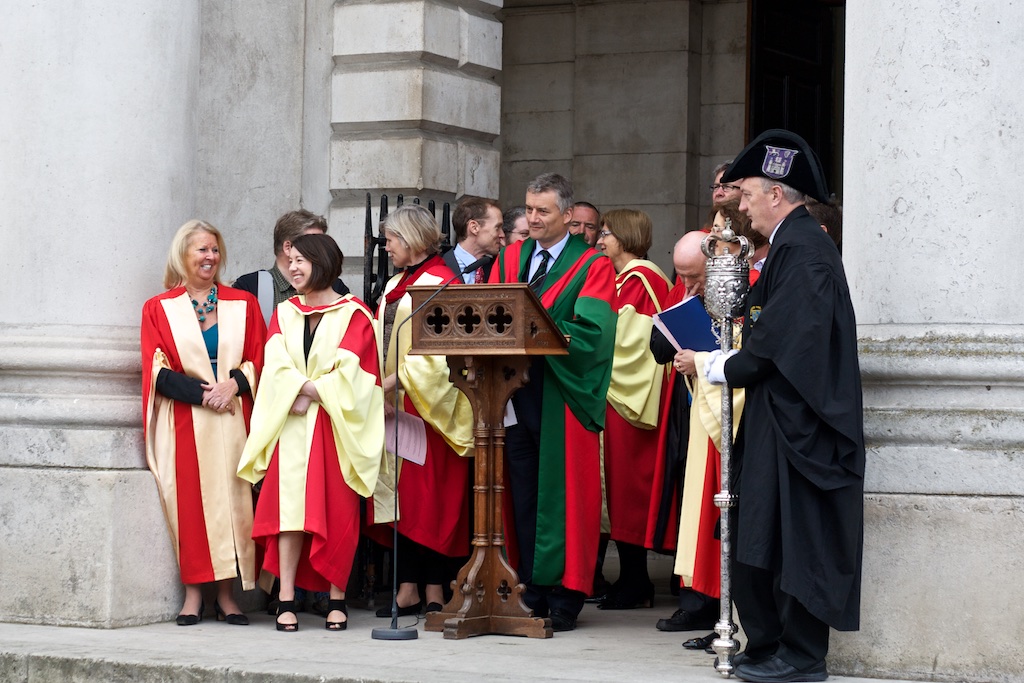Part-time staff may soon be eligible to be elected to Fellowship, one of the most senior academic positions in the College, following a proposal to extend the eligibility to part-time academic staff in a bid to improve gender equality among Trinity’s Fellows.
College Board approved the proposal in September, with the Fellows themselves yet to approve the step. The proposal follows a report, Fellowship: Gender, Faculty and School Analysis, obtained by The University Times and commissioned by the College Board on February 27th, 2013, which made 14 recommendations as to how Trinity’s Fellows might be diversified by gender, faculty and school.
Of the 14 recommendations brought to the College Board, one stated that College should “consider extending participation in Fellowship to appropriate categories of staff who work part-time”.
In response to this report, presented to College Board in November 2013, the Central Fellowship Committee put forward their recommendations for changing the Statues of the College in December 2013 in order to incorporate the recommendations made by the report.
Fellows play a significant role in the governance of the College. The College Statutes describe election to Fellowship as an “academic honour and distinction grounded in the core values and intrinsic purpose of College”. Any full-time assistant, associate professor or professor who has been a member of staff for more than three years can apply. The primary qualification for Fellowship is academic performance, which is assessed through teaching or research.
Currently, only full-time staff can be elected to Fellowship. The proposed statutory change, which would see the removal of this statute instead of a rewriting of it as suggested by the Fellows, would extend eligibility to part-time academic staff on the condition that the candidate for Fellowship performs at least 50 per cent of the normal working hours of a full-time permanent member of staff.
Currently, the College Statutes provide that the “office of Fellow is a full-time one”, that Fellows may only be elected from “categories of full-time staff” and that “Fellowship shall terminate where a Fellow ceases to be a full-time member of the academic staff”.
Subject to assent by the Fellows and approval by the Visitors before final implementation, the proposals could see part-time members of academic staff be eligible to apply for Fellowship from the 2017-18 academic year following a change in the Statutes.
The Visitors are made up of the Chancellor of the University, former President of Ireland Dr Mary Robinson; and the Judicial Visitor, former High Court Judge Ms Justice Maureen Harding Clark. The Judicial Visitor is typically an individual with extensive legal experience and is appointed by the government.
Men represent a significant proportion of the Fellows elected since 2006. Between 2006 and 2015, 85 per cent of those elected to Honorary Fellowship were male. According to a separate report commissioned by the College Board and published in April, 77 per cent of Professorial Fellows elected during the same period were male.
The 2013 report found that “women are consistently less likely to be a Fellow”. It also found that staff from the Faculty of Health Sciences are under-represented among Fellows. The majority of part-time staff are women working in the Faculty of Health Sciences, further exaggerating this under-representation.
In an email statement to The University Times, the College Registrar, Prof Paula Murphy, who is responsible for the maintenance and review of the Statutes, said that Trinity is “at the point of putting the proposal to Fellows for assent in the near future”.
“The proposed changes to the statutes that would open eligibility for Fellowship to part-time academic staff is a very positive move that I am very pleased to bring forward”, Murphy added.
The other 13 recommendations put forward by the Equality Committee are being implemented, according to Murphy. These recommendations included providing seminar training on unconscious bias for anyone involved in the Fellowship election process, as well as the extension of mentoring programmes to encourage eligible staff to apply for Fellowship.
Murphy explained that the proposal to extend eligibility for Fellowship to part-time staff was the only recommendation “that required statutory change for implementation”.
Speaking to The University Times, Prof Eoin O’Dell, an associate professor in the School of Law, who chaired both the four-year period of revision by the Statutes Review Working Party, which culminated in the 2010 consolidated statutes and the more-recent revisions by the Schedules Working Party, welcomed the proposed change. “It’s important to increase the diversity amongst the Fellowship”, he said.
“If people from different perspectives come to the Fellowship and engage in Fellows, that can only be good for the Fellows”, O’Dell added.
O’Dell explained that “the Fellows were prepared to go further and also include those who discharge the full range of academic functions but don’t have the title of lecturer or professor”, in their set of recommendations.
When asked for comment as to why the College Board only approved the proposal relating to part-time staff, O’Dell said that they could “understand” why the College Board, “having requested the Equality Committee to make recommendations, would seek the implementation of those recommendations, which related to the eligibility of part-time members of the staff for Fellowship”.
This recommendation, however, would go beyond the scope of the Equality Committee report. “I can understand why that issue needs to be looked at further. I don’t think that it’s gone away, I think it is simply going to be looked at or can be looked at again after the part-time eligibility issue has been dealt with”, O’Dell said.
When asked about these additional recommendations not being included in the proposal to Board, Murphy said that the “additional proposed changes added by Fellows during consultation … were referred back to Fellows for further discussion and consideration at a later date”.
“We made our recommendations, we are delighted to see a substantive part of those recommendations coming back. We look forward to the opportunity to engage further on the other recommendations, but that’s the way that policy-making is supposed to work”, O’Dell added.







